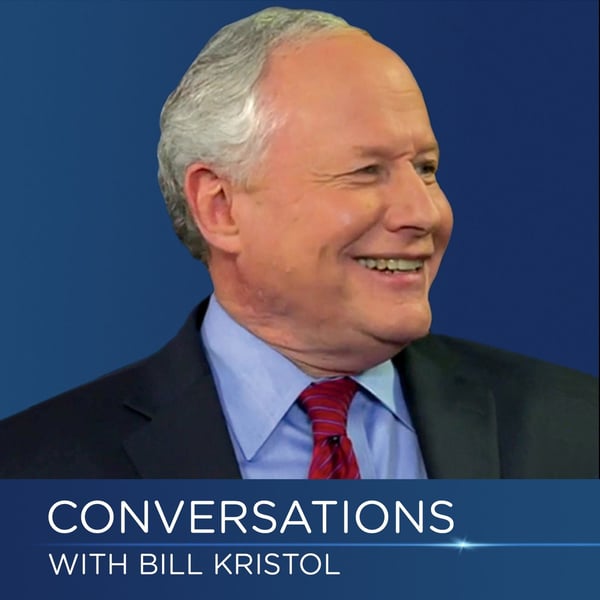Chester Finn: Education Reform in America
Conversations with Bill Kristol
Conversations with Bill Kristol
4.7 • 1.7K Ratings
🗓️ 18 April 2020
⏱️ 73 minutes
🧾️ Download transcript
Summary
Transcript
Click on a timestamp to play from that location
| 0:00.0 | And the Hi, I'm Bill Crystal. Welcome to Conversations. I'm very pleased to be joined today by my old friend and colleague, not old, but young, young but long time, friend and colleague, |
| 0:26.2 | Chester Finn, who we worked together in the Reagan administration and the education department. |
| 0:31.3 | We had met previously when you worked for Pat Moynihan, I think one of I would say the leading education reformer and student of education reform in the last several decades. |
| 0:40.0 | You're kind. And so you're going to tell us. It's good to be with you. |
| 0:43.0 | And so education reform. |
| 0:45.0 | It's when I came in 85, you to work for Bill Bennett, the education department. |
| 0:49.0 | It was two years after a nation at risk, which was the report that was done under Reagan that kind of |
| 0:54.0 | seemed to coalesce the educational reform movement. We had great hopes and here we |
| 0:58.8 | are what, a long time later, 35 years later, as we speak here in March of 2020 and where does it stand? I mean where |
| 1:06.2 | do our school stand and where does the reform effort stand? K-12 I'm thinking |
| 1:11.0 | of K-12. K-12 for now, yeah. |
| 1:13.4 | Our schools are nowhere near where they need to be. |
| 1:15.9 | They're nowhere near where the nation at risk commission |
| 1:19.2 | said they should be. |
| 1:21.6 | They're better than they were. There have been gains. That's right. So you |
| 1:26.2 | think from 80 whatever from yeah it's it's there's been a if you just look at test |
| 1:30.8 | scores there were considerable gains, especially in the early grades, especially |
| 1:36.4 | for poor minority kids, especially in math, through the 90s and into of the 21st century. |
| 1:43.6 | It's plateaued over the last five or eight years, |
| 1:47.0 | pretty much since the big recession. |
| 1:50.5 | A big issue is that the gains that were visible never reached high school. |
| 1:55.0 | And so the achievement results in high school are basically flat, |
... |
Please login to see the full transcript.
Disclaimer: The podcast and artwork embedded on this page are from Conversations with Bill Kristol, and are the property of its owner and not affiliated with or endorsed by Tapesearch.
Generated transcripts are the property of Conversations with Bill Kristol and are distributed freely under the Fair Use doctrine. Transcripts generated by Tapesearch are not guaranteed to be accurate.
Copyright © Tapesearch 2025.

